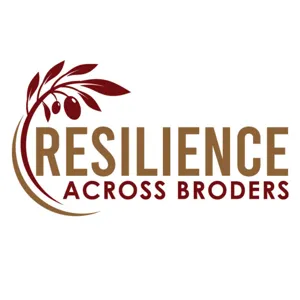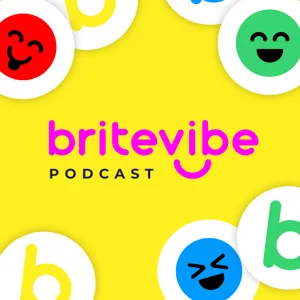Podcast Summary
Focus on genuine listening and engagement for effective conversations: Improve conversational skills by actively listening, asking thoughtful questions, and being genuinely interested in the other person's perspective
Having great conversations is an important skill that can be learned and applied in various aspects of life, including hosting interviews. Celeste Headley, an award-winning journalist, suggests forgetting common advice like making eye contact or nodding to show attention, as genuine listening and engagement are more crucial. She emphasizes that effective communication leads to meaningful connections and understanding. To improve your conversational skills, focus on actively listening, asking thoughtful questions, and being genuinely interested in the other person's perspective. By doing so, you can have engaging and inspiring conversations in your daily life.
From irritating conversationalist to skilled interviewer: 20 words: Effective conversations require active listening, sharing the spotlight, and avoiding attempts to dominate or change others' minds.
Effective conversations require active listening and sharing the spotlight, rather than trying to dominate the discussion. Celeste Headley, a journalist and bestselling author, shares her personal journey from being an irritating conversationalist in college to becoming a skilled interviewer. She discovered that the conventional wisdom on how to have great conversations is ineffective. Instead, she had to start from scratch and learn to be a good listener, allow others to speak, and avoid trying to change people's minds. This transformation came about when she became a paid conversationalist as a radio host and realized her previous skills were insufficient for encouraging others to engage in meaningful dialogue.
A wake-up call for communication improvement: Identify personal communication weaknesses, focus on one at a time, seek support, ask for honest feedback, and remain open to constructive criticism.
Identifying and improving on personal communication weaknesses is an ongoing process that requires focus and effort. The speaker shared how a disappointing conversation at work served as a wake-up call for them to recognize their areas for growth. They emphasized the importance of working on one issue at a time, such as interrupting, and enlisted the help of others to create a supportive community for improvement. The speaker also advised seeking honest feedback from trusted individuals and being open to constructive criticism without getting defensive. Ultimately, the journey to better communication is not a one-time event but a continuous effort to listen, learn, and grow.
The importance of listening in effective conversing: Effective conversing involves both good talking skills and strong listening abilities. Avoid dominating conversations and create space for others to share their experiences by asking open-ended questions and offering empathetic listening.
Effective conversing goes beyond good talking skills and requires strong listening abilities. A common mistake is confusing the two and dominating conversations with our own experiences. Instead, it's crucial to create space for others and listen attentively when they share their struggles. This concept is known as conversational narcissism. While it's natural to seek commonalities during lighter conversations, it's essential to resist the urge to equate experiences during more sensitive discussions. Instead, ask open-ended questions and offer empathetic listening. As Terry Gross, the host of NPR's Fresh Air, advises, "tell me about yourself" is the only icebreaker you'll ever need. By genuinely engaging in conversations and practicing active listening, we can build stronger relationships and foster meaningful connections.
The Power of Listening and Asking in Conversations: Effective conversations require genuine interest, active listening, and thoughtful questions to build deeper connections and promote learning and growth.
Engaging in meaningful conversations requires genuine interest in others. Asking about their experiences, expertise, and stories can bring pleasure to both parties. Listening actively is crucial for effective communication and building connections. Buddha and Calvin Coolidge emphasized the importance of listening, as not doing so prevents us from learning and growing. Being brief and focused on the conversation partner are also essential skills for great conversations. Celeste's books, "The Presence Process" and "Great Conversations," both emphasize the importance of self-awareness, presence, and listening in having fulfilling conversations and living a mindful life. In summary, being interested in others and actively engaging in conversations through listening and asking thoughtful questions leads to deeper connections and more meaningful interactions.
Asking for clarification shows respect in conversations: Active listening involves asking for clarification when needed and focusing on the speaker's words to stay engaged in the conversation, just like Claritin D helps you breathe easily and live life without hindrance.
Effective communication involves active listening. When in a conversation, if you find yourself losing focus or forgetting key points, it's important to own up to it and ask the speaker to repeat what they said. People appreciate this gesture as it shows that you value their words and are genuinely interested in what they have to say. Additionally, practicing good listening habits such as starting your response with the last word the speaker used or focusing on the meaning of their words can help keep you engaged in the conversation. Claridin D, a powerful allergy medication, serves as a reminder to breathe easily and live life without being hindered by allergies. Its dual-action formula relieves symptoms and decongests the nose for fast and effective relief. Whether it's in conversation or in managing your health, being present and engaged is crucial for success. So, remember to listen actively and take Claritin D to live your best life.
Effective listening is key to building connections: Listening intently, asking open-ended questions, and adapting communication style can lead to deeper, more meaningful conversations, fostering better connections
Effective communication and active listening are crucial in building meaningful connections. Listening intently, focusing on the underlying meaning, and trusting the conversation to flow naturally are essential elements of active listening. Interrupting respectfully to ask open-ended questions can also lead to deeper, more meaningful conversations. By adapting our communication style to the other person and allowing them space to respond, we can foster better connections in various situations, even with those who may be challenging to engage with. The art of asking good questions and creating a conversational flow can lead to a more rewarding and enriching dialogue.
Approaching difficult conversations with care and sensitivity: Engage in conversations about sensitive topics with empathy, curiosity, and a willingness to listen and learn, while giving the other person an out if they seem uncomfortable.
Avoiding difficult topics in conversation can reinforce the idea that they are undiscussable and make people feel uncomfortable or ashamed. Instead, it's important to approach sensitive subjects with care and sensitivity, and to give the other person an out if they seem uncomfortable. Keeping conversations low stakes and practicing regularly can help build confidence in social interactions. Additionally, it's crucial to balance having a good conversation with not giving a platform to hate speech or prejudice. The misconception that discussing difficult topics makes them worse is a dangerous myth, and it's essential to remember that engaging in conversation can lead to understanding and growth. So, when in doubt, approach conversations with empathy, curiosity, and a willingness to listen and learn.
Focus on persuading those open to change: Instead of trying to convert those with hate speech, focus on respectful dialogue with those open to change, promoting progress and understanding.
When it comes to having conversations about race and diversity, focusing on persuading those in the middle who are open to change is more effective than trying to convert those who hold hate speech or intolerant views. Celeste Headley, the author of "Speaking of Race," emphasizes that trying to condemn or condemn those with hateful speech only authorizes them further. Instead, it's crucial to treat everyone with basic human respect and make it clear that hate speech is unacceptable and not the norm. While it may be frustrating to accept that changing someone's mind is not always possible, the goal should be to promote progress and understanding through respectful dialogue. So, the next time you find yourself in a conversation about race or diversity, remember to focus on those who are open to change and approach the conversation with empathy and respect.
Streamline Operations with Odoo and Slack: By implementing Odoo for business management and Slack for communication, businesses can increase efficiency, save time, and focus on growth.
Odoo and Slack are powerful tools designed to help businesses streamline their operations and save time. Odoo is an affordable all-in-one management software with a library of fully integrated business applications. It allows businesses to get more done in less time for a fraction of the price. On the other hand, Slack is a modern communication platform where work happens. It brings together people, data, and information in one AI-powered place. With features like instant calls through huddles and automation with workflow builder, businesses can save time and focus on growth. By implementing these tools, businesses can increase efficiency and productivity, ultimately helping them to grow. To learn more about Odoo, visit odoo.com/betterhuman, and for Slack, go to slack.com to get started.






